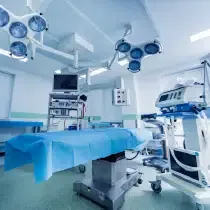Get help for medical surgeries at our partner hospitals on easy EMI's
Information provided will be used to contact you only for the enquiry selected.
Agree toTerms and ConditionsPune - 411005

Find the best hospitals for Lipoma Removal on the Bajaj Finserv Health platform.
Information provided will be used to contact you only for the enquiry selected.
Agree toTerms and ConditionsLipomas, benign soft tissue growths, often prompt individuals to consider surgical removal for cosmetic or medical reasons. In India, where healthcare accessibility is paramount, the cost of lipoma removal surgery becomes a crucial aspect for patients and their families. The cost of lipoma removal in India is influenced by various factors, making it challenging to provide a precise estimate. On average, lipoma removal surgery costs can range from 20,000 Rs. to 30,000 Rs. The overall cost includes pre-operative consultations, the surgical procedure, post-operative care, and any necessary medications or follow-up appointments. The choice of healthcare facility, the expertise of the surgeon, and the complexity and number of lipomas being removed contribute significantly to the overall cost.
| City | Minimum Price | Average Price | Maximum Price |
|---|---|---|---|
| Central Delhi | ₹ 20000 | ₹ 25000 | ₹ 30000 |
| Delhi NCR | ₹ 20000 | ₹ 25000 | ₹ 30000 |
| Mumbai | ₹ 20000 | ₹ 25000 | ₹ 30000 |
| Pune | ₹ 20000 | ₹ 25000 | ₹ 30000 |
| Bengaluru | ₹ 20000 | ₹ 25000 | ₹ 30000 |
The number and size of lipomas being removed during the surgery can significantly impact costs. Multiple or larger lipomas may require more extensive surgical procedures, contributing to increased expenses.
The choice between public and private healthcare facilities significantly affects the cost of lipoma removal surgery. Private hospitals, offering advanced amenities and personalized care, often charge higher fees compared to public hospitals.
The type of anesthesia used during the procedure can impact costs. General anesthesia, which ensures the patient is unconscious throughout the surgery, may be more expensive than local or regional anesthesia.
Cities with higher living costs and greater demand for healthcare services often have higher lipoma removal surgery costs. Metropolitan areas such as Mumbai, Delhi, and Bangalore may experience elevated prices compared to smaller cities or rural regions.
The availability of advanced medical infrastructure and specialized surgical centers in urban areas can contribute to higher surgery costs. Major cities typically invest more in state-of-the-art facilities, leading to increased overall healthcare expenses.
The level of competition among healthcare providers in a particular city can impact pricing. Cities with a higher number of healthcare facilities and specialized surgical centers may experience more competitive pricing, potentially leading to lower lipoma removal surgery costs.
The experience and expertise of the surgeon performing the lipoma removal procedure play a crucial role in determining costs. Highly experienced and skilled surgeons may command higher fees.
The surgical technique employed for lipoma removal can impact costs. Minimally invasive procedures may be associated with lower expenses compared to more complex surgical techniques.
The need for comprehensive post-operative care, including medications and follow-up appointments, contributes to overall expenses. Adequate post-operative care is crucial for monitoring recovery and addressing any potential complications.
Understanding the multifaceted factors influencing lipoma removal surgery costs in India is crucial for patients and their families considering this surgical intervention. The number and size of lipomas, healthcare facility type, geographical location, surgeon's experience, and additional considerations collectively contribute to the overall expenses. Patients are encouraged to seek comprehensive information, consult with experienced surgeons, and consider both medical and financial aspects when opting for lipoma removal surgery. As India's healthcare landscape continues to evolve, staying informed about these factors becomes increasingly vital for ensuring transparent and accessible surgical care across the country.
